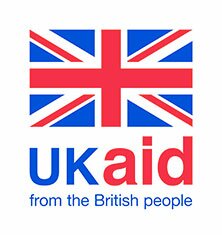Resource centre
Recommendations to strengthen Uganda’s Education Response Plan for Refugees and Host Communities (ERP): Coordination systems in the ERP
This policy brief presents recommendations on the coordination systems of the ERP, based on our full report. The ERP relies on the coordination of decisions and activities of multiple national and local actors in a short time-frame. The brief provides findings on the mechanisms of coordination, the effectiveness of the mechanisms and, obstacles to its overall success, as well as recommendations on leadership and levels of decision making.
Recommendations to strengthen Uganda’s Education Response Plan for Refugees and Host Communities (ERP): Financing of the ERP
This policy brief presents recommendations on the financing of the ERP, based on our research report. One of the aims of the ERP is to coordinate and mobilise financing which contribute to the objectives of improving access, quality, and system strengthening. The brief highlights the ERP’s financing needs and mechanisms and provides recommendations for strengthening financing for the ERP.
Recommendations to strengthen Uganda’s Education Response Plan for Refugees and Host Communities (ERP): Collecting and using information for the ERP
This policy brief presents recommendations on the collection and use of information for the ERP, based on our research report. The ERP relies on a strong monitoring and evaluation system so that data on implementation, and indicators can be tracked reviewed and acted upon in a timely manner. The brief highlights findings on the systems used to collect and manage data as well as recommendations for improving data collection accuracy.
Information, coordination, and financing: Does the Education Response Plan for Refugees and Host Communities make a difference?
The Education Response Plan for Refugee and Host Communities in Uganda (ERP) is a 3.5 year plan designed to ensure that individuals aged three to 24 from refugee and host communities are able to access sustained quality learning opportunities. This report presents the analysis and findings from Phase 1 of the Maintains education research in Uganda. The research focuses on whether the ERP improves the capacity of the Government of Uganda to provide quality education services to refugees and host communities in response to a man-made shock – in this case the refugee influx.






